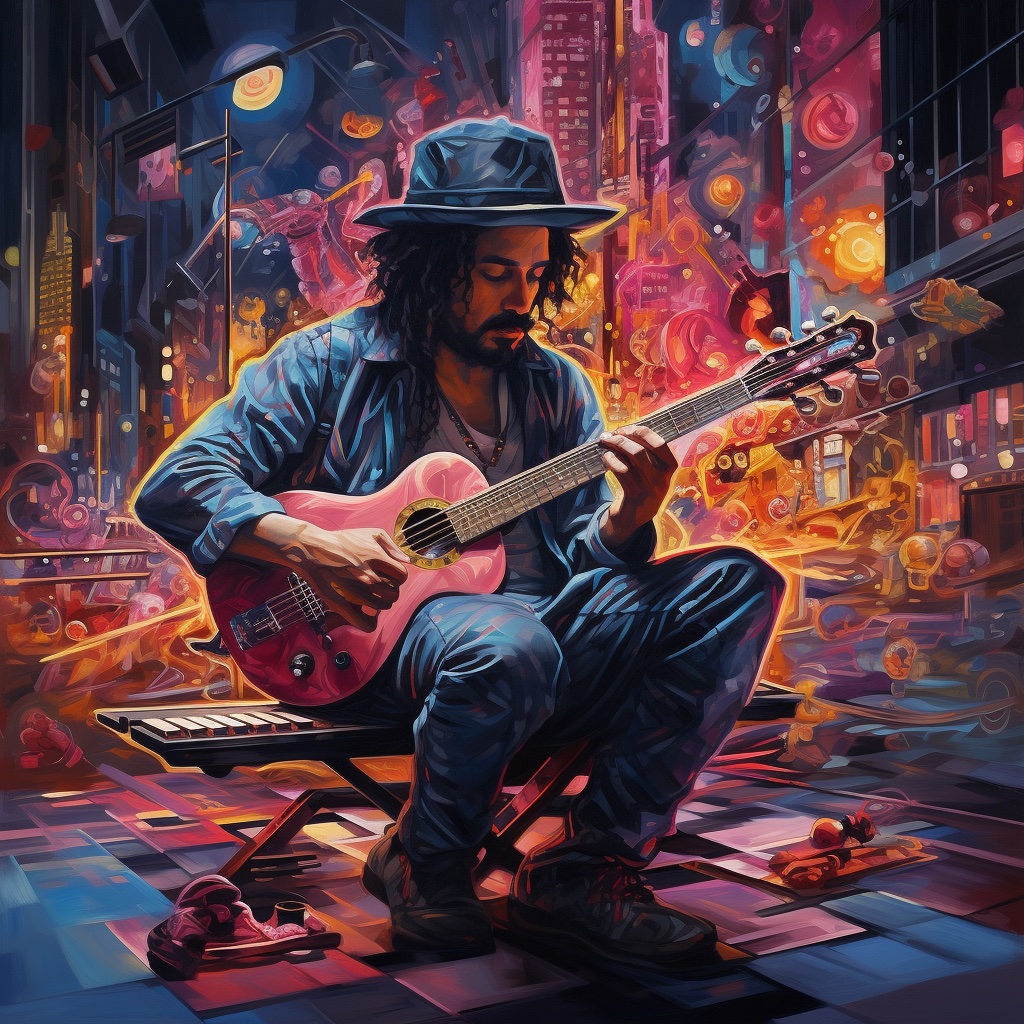Welcome, and thank you for being part of the MyZucoins community! Let’s get into an interesting piece of crypto, finance, or tech news to stay ahead.

How Can The Combo of AI And Blockchain Disrupt The Music Industry?
The blend of artificial intelligence (AI) and blockchain is poised to reinvent the music industry, elevating artists’ creative potential while ensuring transparency and equitable revenue distribution.
AI’s growing application in music creation blurs the line between human and AI-generated content, raising ethical and legal concerns.
Blockchain can address these by tracking music content’s origin, safeguarding copyrights, and guaranteeing artists’ fair remuneration.
Including middlemen like labels and centralized streaming platforms, it fosters a direct relationship between artists and fans.
Pop superstar Taylor Swift’s struggle to regain control over her music illustrates the industry’s complexity for young artists.
Blockchain, often touted as the “Promised Land” for musicians, promises to democratize the music industry, giving artists a larger slice of the profit pie by connecting directly with fans via non-fungible tokens (NFTs).
Tokenizing a song’s royalties, a growing use case for “music NFTs,” allows fans to earn a share of their favorite artists’ music revenue.
However, music copyright law and royalty collection are highly complex and largely off-chain. The fusion of blockchain into the music industry is seen as a way to simplify this complexity.
Platforms like Royal, Anotherblock, and Bolero are tokenizing traditional music royalty streams, enabling artists to retain copyright ownership while sharing royalties. These blockchain royalties are generated from the secondary sales of their NFTs, offering a new revenue stream for artists.
For fans, buying into musicians’ tokenized royalties offers a new way to support their favorite artists and share in their success.
Historically, purchasing music catalogs was limited to record labels and major institutional funds.
Through fractionalization, everyday fans can access music rights, which typically offer stable assets with reliable returns.
As the traditional music industry remains off-chain, the transition to a decentralized music industry is a gradual and complex process, with uncertainties surrounding the legal status of NFTs and crypto in the U.S.
Despite these challenges, proponents believe that in time, platforms like Spotify will pay out royalties directly on-chain, making the system more efficient. Read more here, and here.
More On: Music And Crypto Tokens
Grimes reshapes the AI music era.
Tokenizing the world is a $5T opportunity in 5 years.
Where Could Cryptos Like Zucoins Position Themselves In The Music Industry
As AI and crypto technologies continue to revolutionize the music industry, Zucoins and its underlying Splitchain network can strategically position themselves to utilize these innovations.
One potential application could be in the realm of music creation.
Building on the concept of tracking music content to ensure fair compensation and respect for copyrights.
As noted, AI-generated music is becoming increasingly prevalent, raising questions about copyright and consent.
The Splitchain network could be used by an artist’s fans, or by developers and entrepreneurs to verify the association of AI-generated music, ensuring that original creators are appropriately acknowledged and compensated.
This would honor the rights of original creators and contribute to the network’s overall goal of decentralization and transparency.
The music industry’s complex structure often leaves artists at the mercy of labels and other intermediaries.
The concept of “music NFTs” (or Music Smart Assets), directly links artists and fans, allowing fans to invest in their favorite artists and music financially.
Zucoins’ support for microtransactions also holds potential for the music industry. With the ability to support transactions up to 32 decimal places, fans could invest in their favorite artists’ music even with small amounts of money.
This could democratize access to music investment, allowing more fans to participate and benefit from the success of their favorite songs and artists.
In essence, the synergy of Zucoins and the Splitchain network could help revolutionize the music industry by addressing its core challenges and unlocking new opportunities for artists and fans alike. By doing so, they could help create a more transparent, equitable, and artist-centric music industry.
If you liked this newsletter, please forward it to someone who might like it too.
You can also donate here or even buy some Zucoins. Every little bit helps us improve.
What did you think of this newsletter? Reply to send us feedback on what you liked or want to see featured more. There’s more coming, so stay tuned.
—
All the best,
Peter & Rob
MyZucoins